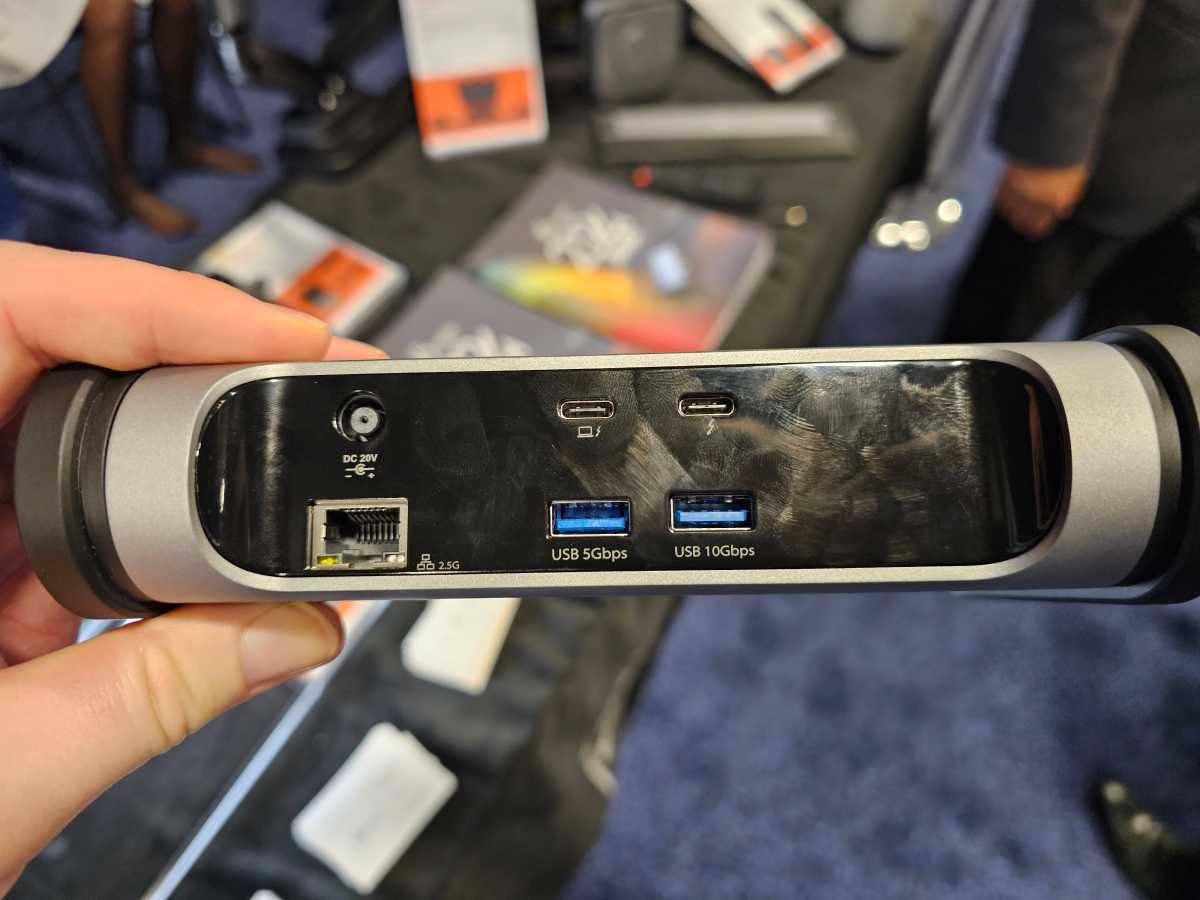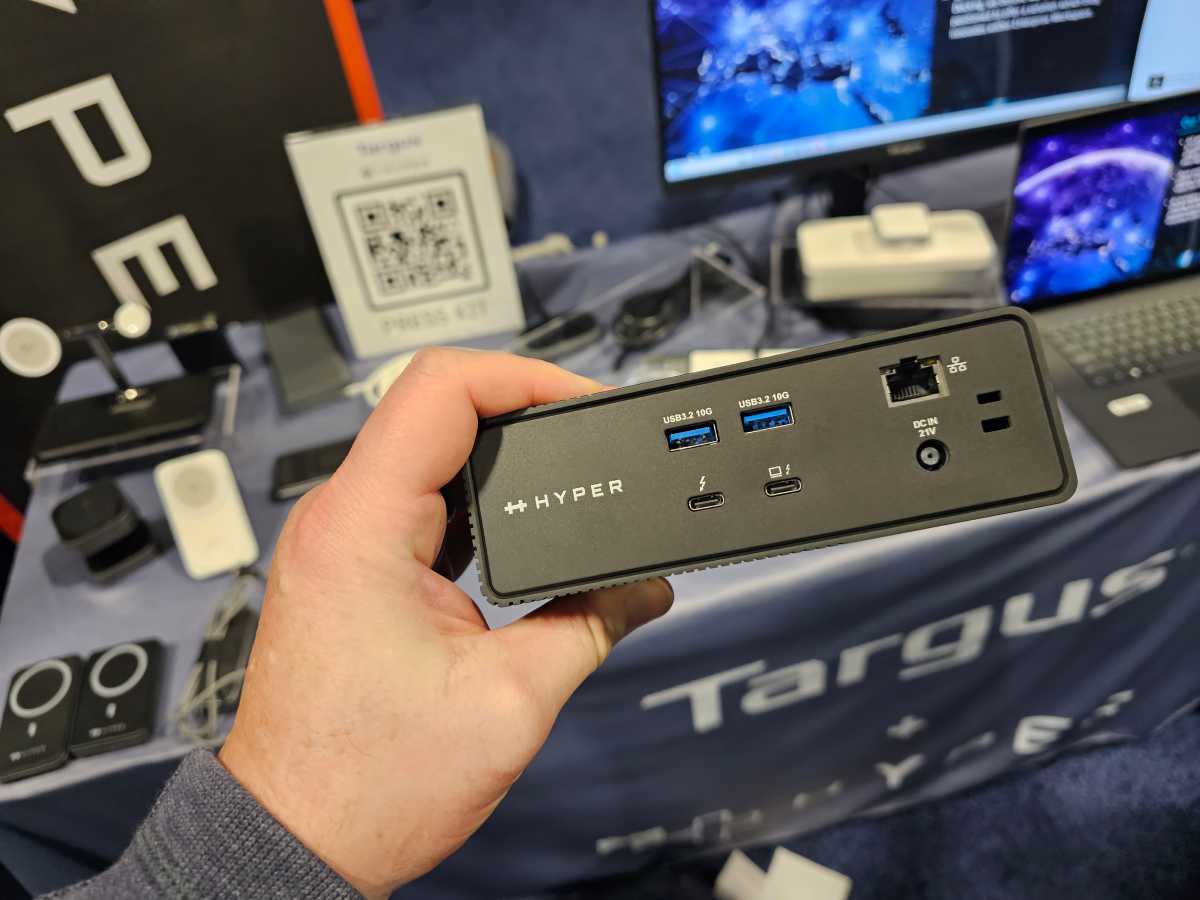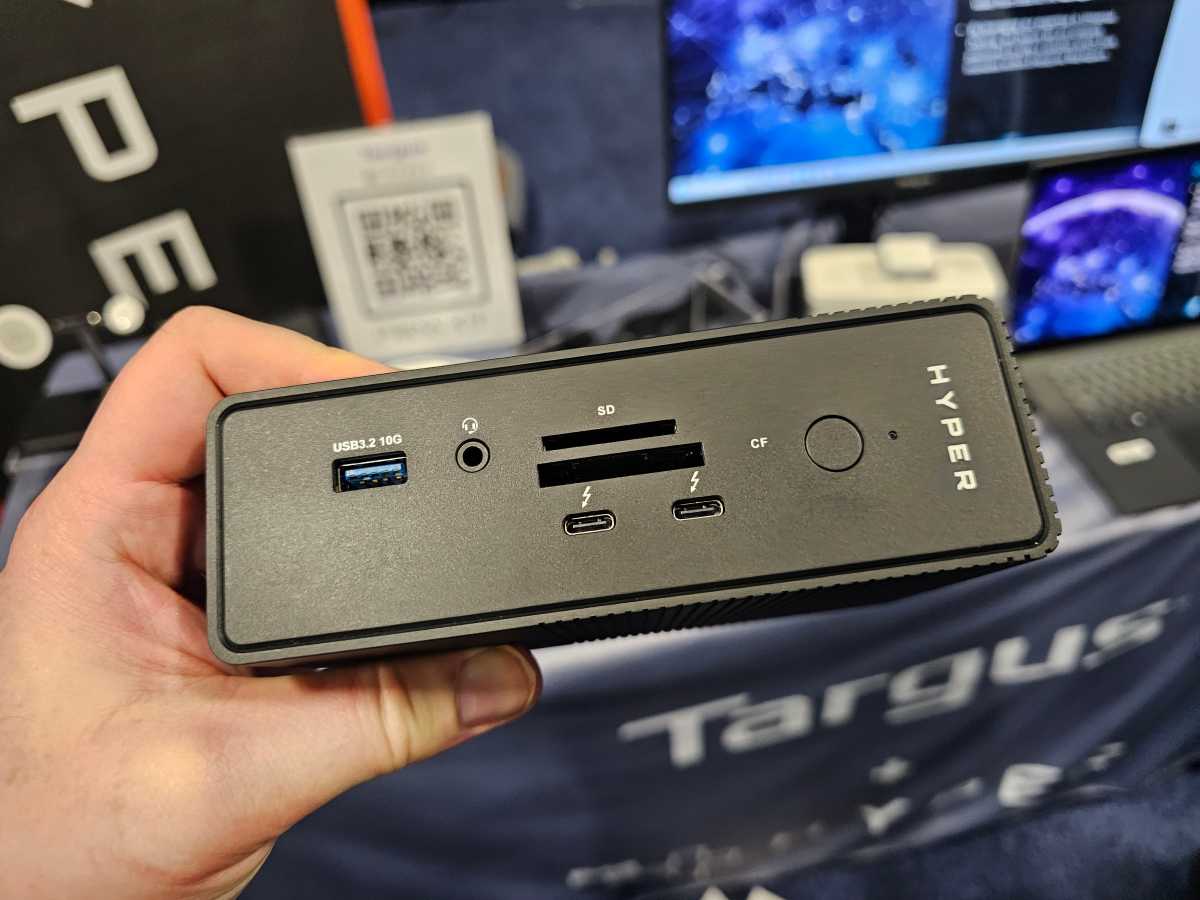We know that Thunderbolt’s next major iteration, Thunderbolt 5, will debut sometime in 2024. Two vendors, J5create and Hyper, showed off their first hardware at CES 2024. But there are two big questions: When will you actually get it and how much will it cost you?
The answer? It depends. Both J5 and Hyper representatives told PCWorld that they received their prototype hardware just Sunday, and a J5 representative said he was optimistic that his company’s first product would ship in March. Others weren’t so sure.
Thunderbolt is the more powerful I/O alternative to the generic USB-C connection found within most laptops. Though a 10Gbps USB-C connection can be used to drive a USB-C hub or dongle to add ports to your laptop, the 40Gbps Thunderbolt 3/4 connection allows for multiple high-speed displays via a Thunderbolt dock.
Thunderbolt 5 doubles that throughput to 80Gbps, and in some cases offers a one-way connection that can hit 120Gpbs. That will allow consumers to add one or more high-speed displays to their laptop. Thunderbolt 4 allowed you to connect two 4K displays, at 60Hz. Thunderbolt 5 increases that to support three 4K displays, at 144Hz each.
The problem is that Thunderbolt requires both device support as well as in your laptop or desktop PC. Intel has said previously that Thunderbolt 5 will be supported in its 2024 product lineup, but as a discrete chip: That means that laptop OEMs will pay more to add Thunderbolt 5 to their laptops, and, by extension, so will you. It will also likely sap a bit of power from your laptop’s battery.
We still don’t know when either the Thunderbolt host controller or the device controller will ship. But with the first Thunderbolt controllers already in prototype hardware, we can be optimistic.
The first Thunderbolt 5 docks, revealed
J5create, also known as J5, showed off the Thunderbolt 5 Dual 8K60 Display Dock at the CES Unveiled show on Sunday night. It will be priced at $499, a representative said, and likely available for consumers to buy in March.
Mark Hachman / IDG
It’s not quite clear what the specific features of the J5 device will be, but it appears that it will lean into the existing Mac market for Thunderbolt displays as well as the emerging USB-C/Thunderbolt monitor market for Windows devices. It has two Thunderbolt 5 ports on the front, a microSD/SD card slot, a mic/speaker jack, and a 10Gbps USB-A port. On the back, there’s a power input, a 2.5Gbps Ethernet jack, two USB-A ports (5Gbps and 10Gbps), and a third Thunderbolt 5 upstream port, combined with the downstream connection to your PC. It’s worth noting that Thunderbolt 5 does allow for up to 240W downstream charging to your laptop, but J5 plans to support 140W charging instead.

Mark Hachman / IDG
Hyper, the more consumer-focused imprint of Targus, also revealed the Hyper TB5 Dock, which it plans to sell for $399, a representative said.
Hyper’s TB5 dock looks similar. There, Hyper’s TB5 Dock offers both a microSD card and SD card slot, alongside two upstream Thunderbolt 5 ports. There’s also a 10Gbps USB-A port and a mic/headphone jack.

Mark Hachman / IDG
On the rear, this triple display dock offers two DisplayPort ports and an HDMI port, the specifications of which weren’t clear. There is also an Ethernet connection. On the rear, there is a pair of USB 3.2 Type A ports (at 10Gbps apiece) as well as a Thunderbolt 5 port.
And there was a hidden surprise in both docks, too: a small foldout port for an M.2 SSD card, making them Thunderbolt dock enclosures, as well.

Mark Hachman / IDG
Bernie Thompson, the chief technical officer of dock maker Plugable Technologies, told PCWorld that he expects Thunderbolt 5 hardware to be available “towards the end of the year.”
Plugable launched the TBT4-UD5 Monday at CES 2024, which he said could be one of the company’s last Thunderbolt 4 docks. The TBT4-UD5, priced at $199, pairs two HDMI ports with a downstream Thunderbolt 4 port, a 10GBps USB-C port, four USB-A ports (two at 10Gbps, and two at 5Gbps), microSD/SD card readers, and a 3.5mm jack. It delivers 96W downstream to your notebook.
Plugable’s Thompson said that it’s pretty clear that HDMI has won out as the I/O connection interface of choice, though noting that it’s the embedded DisplayPort protocol that actually is the Thunderbolt transfer medium.











